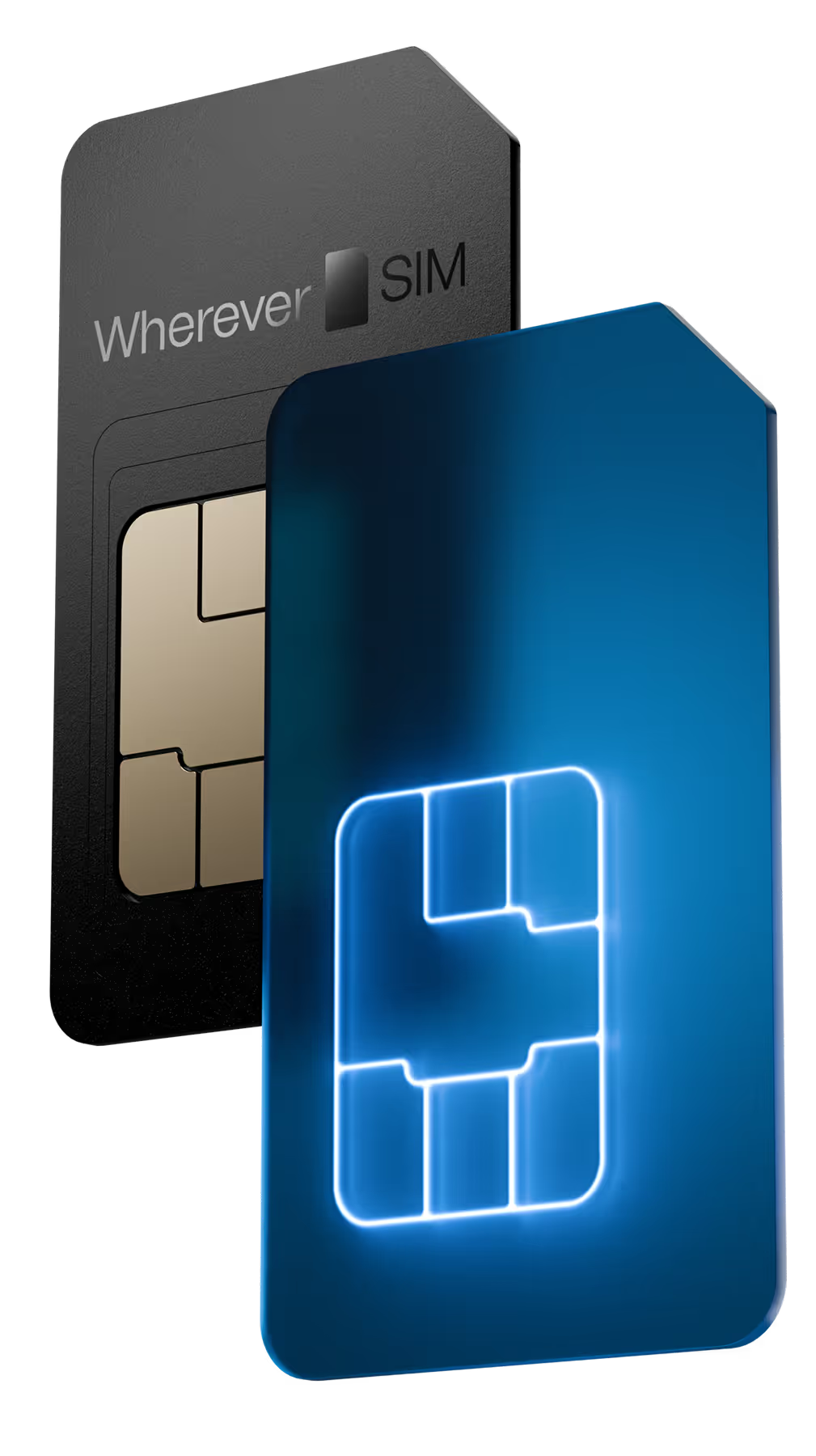Whether for AI-supported analyses, remote patient monitoring or general process improvement in hospitals - telemedicine technology, the IoT and devices networked within it are transforming our healthcare. M2M SIM cards are an important component for networking telemedical applications.

Modern health economy: M2M applications in the healthcare sector
Machine-to-machine communication(M2M communication) refers to the automated exchange of data between devices, among each other or from a device to a central system. However, not only devices, but also robots, vehicles, machines or production systems can collect and share data thanks to M2M technologies and wireless communication.
M2M applications in medical technology include some ECG devices or emergency vehicles, for example. These transmit data without human intervention so that information is available on another end device when required. M2M solutions are also increasingly being used in home care. These technologies transmit data from measuring devices on the patient, for example, and thus help with remote patient monitoring. Data is usually transmitted via the internet.
Medical devices can be connected by cable or equipped with M2M SIM cards that enable wireless data transmission. The expansion of 5G will play a major role for M2M SIM cards for telemedicine applications in particular. With 5G, it will be possible to exchange large amounts of data in near real time in the future.
Advantages of M2M medical technology in healthcare
Regardless of whether the connection is made by cable or M2M SIM card: In medical technology, communication between devices has considerable advantages. Automated data exchange from machine to machine is always faster, more effective and less prone to errors than the manual transfer of information. For example, the networking of surgical instruments or devices on wards that would otherwise have to be monitored by personnel.
However, telehealth is not always just about speed. Telemedicine applications have been driven primarily by situations in which the doctor or specialist and patient are physically separated. This includes residents of remote villages as well as space travel with astronauts in space and researchers on an expedition in the Arctic. Sensors that monitor selected bodily functions in implants or wearable patient devices also offer great potential. The values collected are in turn automatically transferred to patient databases. Other benefits that can be achieved through automation and digitalization through M2M applications in the healthcare sector include
Selected advantages of M2M for Telehealth at a glance:
More flexibility through telemedicine & M2M applications
Reduced budgets and fewer and fewer urgently needed staff are unfortunately becoming increasingly commonplace for hospitals and care facilities. M2M-based medical technology is one way of enabling medical and nursing staff to provide high-quality patient care remotely. This not only relieves the burden on specialist staff, but can also save time and money by optimizing processes. With e-health and telemedicine, patients can learn to measure values such as pulse or blood pressure independently and forward this data directly to their doctor's system.
The benefits of M2M communication in practice: The journey to the doctor or patient is saved. Patients enjoy a higher quality of life thanks to fewer stressful visits to the doctor and the minimization of long waiting times and journeys from rural areas. In the same way, medical staff are relieved and have to work less overtime or can concentrate on other patients.
Data transmission: M2M SIM cards in telemedicine
Mobile communication between devices, apps, practice or hospital systems and central offices or databases only works through the use of different wireless technologies. For example, we offer you an M2M SIM card for telemedicine applications that enables devices at any location to transmit data securely.
Our M2M SIM cards enable your devices to connect to the mobile network in order to transmit data automatically. Unlike SIM cards for smartphones, for example, our M2M SIM can use the mobile networks of different network operators nationally and worldwide. It is therefore often referred to as a multi-network SIM or roaming SIM. As there are usually a large number of M2M SIM cards in use, our M2M SIM cards are managed via an online portal tailored to the requirements of M2M communication. You can use our comprehensive API to transfer data directly into your own systems.
M2M SIM cards for Telehealth: The best connection everywhere with national roaming
Mobile communications for M2M telemedicine has the advantage that the technology is established, standardized and the infrastructure is available almost everywhere. And not just in Germany, but worldwide, across national borders. This nationwide availability of mobile communications is particularly important for sensors that are located on patients, for example, and are therefore constantly on the move.
But not all mobile communications are the same. The Federal Network Agency has come to the conclusion that there is a lot of catching up to do in terms of network coverage by individual network operators: only one of the major network operators' cell phone networks is available in the 4G standard in around 7.2% of Germany as a whole. The risk of connection interruptions and failures is high there. If sensitive health data has to be transmitted quickly, this becomes dangerous. The availability of the networks varies in individual federal states. In Bavaria, for example, network availability is worse than average: the network of at most one mobile network operator is available in 15.5% of the entire area. This patchy coverage shows the relevance of using appropriate M2M SIM cards for IoT and M2M projects in the healthcare sector. This is because they can use the mobile networks of different network operators. Our M2M SIM cards enable IoT devices to connect to the strongest network at a location. So it is not the network provider that counts, but only the network strength.
The right M2M SIM for telemetry and telemedicine
Independence and flexibility are of great relevance in the medical field of M2M technology. Whether a patient is located in the countryside or lives in the middle of the city: in order to be able to react to changes in condition or emergencies in real time as far as possible, data must be reliably transmitted everywhere at all times. We offer you the right IoT SIM cards for this, in combination with flexible M2M tariffs - always geared to the needs of your project. Our M2M SIM cards are available in all common SIM formats as well as Industrial M2M SIMs and fixed eSIMs.





